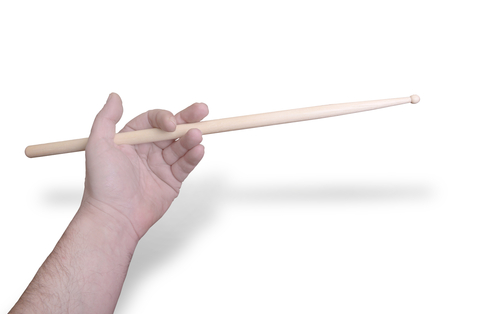Drummer and acoustic performers can clash on stage.
Drummers and acoustic singer/songwriters often clash at times due to a variety of reasons, some of which are quite obvious, such as: dynamic and tempo issues evolving sometimes into rhythmic problems, too much snare, the bass drum is too loud, etc. These things at times can drive a drummer up a wall, especially if the artist is constantly changing and doesn’t have the song solidly arranged.

A lot of singer/songwriters don’t really have a percussive mindset when writing or composing their material. It seems that drums or percussion is the last thing on their mind. For the drummer, it can be a shaky start right from the beginning. This is especially true when it comes to open mics or jam sessions.
The same thing can happen in reverse when the drummer can’t get with the program. Tempo and dynamics are very important ingredients when it comes to playing with acoustic artists. One thing that will stick out like a sore thumb is if the drummer has bad timing. If this situation involves a recording session, the situation can be controlled. But live, this will result in a train wreck and could very well cost you the gig.
There have been situations when drummers have shown up to a gig with a big seven- or eight-piece drum kit and thinks he or she is John Bonham or Buddy Rich. There is an old saying: “KISS,” or “Keep it simple, stupid.” Sometimes you get these drummers who think that they will set them straight. There are a lot of singer/songwriters that can play rings around some drummers, but are very humble when it comes to musicianship.
There are some musicians that try to get into odd time playing and really have no idea or concept of what is going on. A lot of this happens when these players get into a musical situation and think they can just wing it. I remember playing with a guitarist who seemed to be stuck in the 60’s. He called out a tune as a good solid blues shuffle, but when we started to play the song, it was nowhere near a shuffle; not a quarter shuffle, a full shuffle or a rock shuffle. To top it off, he turns around to me and says, “A shuffle man! A shuffle!”
This is just one example of playing with an acoustic/singer songwriter that doesn’t know anything about rhythms and how they are applied to a song or piece of music. Not to constantly rag on the singer/songwriter, but I’ve run into this situation on numerous occasions.
I am really into telling musicians about at least learning a few of the basic rudiments of music, such as listening to different styles or genres, learning your major and minor scales, some basic intervals and your blues scales and intervals. A lot of music is built on the blues foundation and if you are a self-taught musician, take the time to learn the basics. It will serve you well in the future.
There are many areas in which drummers and singer/songwriters clash that are too numerous to cover in this short overview. Remember: making music is work, but have fun because that’s what it is all about!
Some upcoming live performances in Montclair include:

You must be logged in to post a comment Login